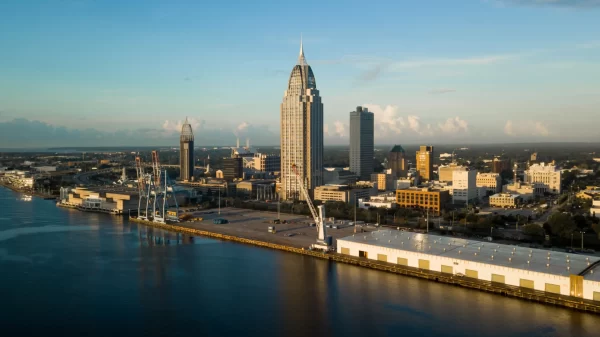By Bill Britt
Alabama Political Reporter
MONTGOMERY— The Alabama Political Reporter has obtained a copy of a study on the financial impact of gaming in Alabama, which will be released ahead of a Gaming Bill being introduced in the Senate later this the week.
An Auburn University Montgomery (AUM) study, commissioned by Senate President Pro Tem Del Marsh (R-Anniston), coincides with an Omnibus Gaming Legislation that he will unveil on Tuesday.
The study by the Institute for Accountability and Government Efficiency (IAGE) at Auburn Montgomery, looks at the financial impact that a lottery, casinos and a compact with the Poarch Band of Creek Indians (PCI) would have on our State budget.
IAGE developed profiles of the lotteries in Alabama’s border states in the US including:
Revenue generated by the lotteries.
Allocation of revenue generated by the lotteries among prizes
Administrative costs
Proceeds available to the states
Types of games each state’s lottery allows
Programs funded from each state’s share of lottery revenue
Using a comparison matrix, the study showed that the potential revenue from a State-run Lottery was estimated to be, $331,667,963 (This was estimated based on per capita lottery revenues in 43 states with state-run lottery systems and Alabama’s population).
The Study also examined the implications if the State were to allow Class III casino gaming, as well as the benefits of entering into gaming compacts with PCI.
AUM looked at the potential revenue generated from gaming facilities in Birmingham, VictoryLand, Greenetrack and Mobile.
The State is estimated to receive annual revenue between $64-73 Million from the four facilities, depending on whether the taxing scheme was 13 or 15 percent of the gross. Birmingham could generate between $28 and $32 million; Greenetrack, $6 to $7 million; VictoryLand, $17 to $18 million; and Mobile $13 to $15 million.
It also shows that the four operations would generate over 13,000 new jobs with a $300 million is wages for a total economic impact of over $800 million.
The study does not show, however, the exact benefits the State would receive from an exclusive compact with PCI. But, a comparison with other states does make it clear, this would be a financial boom for Alabama.
There are issues as to how a compact is negotiated and if it can be implemented by the Governor without legislative approval.
In a 2006 survey conducted by National Conference of State Legislatures (NCSL), 18 states entered into compacts without legislative approval 13 state did require the state body to grant approval.
What is clear from the study is that hundreds of millions for the State are in the offering if the Omnibus Gaming Legislation were approved.
What is less clear is if the competing factions will destroy the bill out of greed or fear.


















































